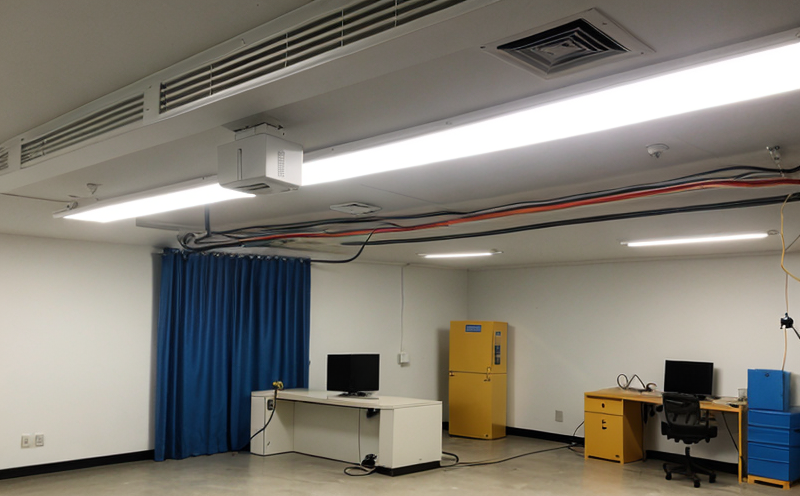ISO 14001 Environmental Management for Electrical Systems
The International Organization for Standardization (ISO) 14001 standard provides a framework to manage environmental aspects and impacts. In the context of electrical systems, this ensures compliance with environmental regulations while promoting sustainable practices in design, installation, maintenance, and decommissioning.
Elevating an electrical system's environmental performance through ISO 14001 requires meticulous planning and execution. This involves identifying significant environmental factors associated with electrical installations, setting targets for improvement, implementing measures to achieve these goals, and regularly reviewing the effectiveness of the management system.
The process begins by assessing the current environmental impact of existing or planned projects. This assessment helps determine which aspects of the project have the most considerable influence on the environment. Once identified, specific actions are developed to minimize negative impacts and enhance positive contributions. For instance, selecting energy-efficient components, optimizing lighting systems for reduced power consumption, and ensuring proper disposal procedures for end-of-life equipment.
Implementing ISO 14001 in electrical systems also means establishing a robust monitoring and measurement program. This includes tracking key performance indicators such as electricity usage, carbon footprint, water consumption related to cooling processes, and waste generation. Regular audits are conducted internally by trained personnel who review compliance with environmental policies and procedures.
A critical component of ISO 14001 implementation is stakeholder engagement. Engaging internal staff responsible for various aspects of the electrical system ensures everyone understands their role in upholding sustainability standards. External stakeholders like local communities, regulatory bodies, and suppliers must also be involved to ensure transparency about environmental practices.
Training plays a vital role in successful ISO 14001 implementation within an organization's electrical systems department. All employees who interact with the electrical systems should receive training on the principles of ISO 14001 as it pertains specifically to their roles. This education helps foster a culture where environmental considerations are integrated into daily operations.
Document control is another essential aspect of adhering to ISO 14001 standards in electrical systems testing. All relevant documentation regarding the implementation and maintenance of the management system must be accurately maintained, easily accessible, and regularly updated. This includes procedures for handling emergencies related to environmental incidents involving electrical installations.
Finally, continuous improvement is at the heart of any effective ISO 14001 program in electrical systems. Regularly reviewing processes, seeking feedback from all stakeholders involved, and making necessary adjustments based on these reviews ensures ongoing enhancement of environmental performance throughout the lifecycle of an electrical project.
Benefits
Implementing ISO 14001 in electrical systems offers numerous benefits beyond mere compliance. It enhances organizational reputation by demonstrating commitment to sustainability, which can lead to increased business opportunities and improved relations with stakeholders. From a practical standpoint, adopting these practices leads to cost savings through reduced energy consumption and waste management costs.
- Enhances organizational reputation
- Increases business opportunities
- Better stakeholder relationships
- Cost savings due to reduced energy usage
- Improved waste management practices
- Increased efficiency in resource utilization
- Promotes innovation in sustainable technologies
- Ensures regulatory compliance and avoids penalties
In addition, ISO 14001 certification provides a competitive edge by differentiating your company from others who may not have implemented similar environmental management systems. It showcases leadership within the industry and encourages a proactive approach towards minimizing adverse impacts on the environment.
Quality and Reliability Assurance
The quality and reliability assurance in ISO 14001 environmental management for electrical systems focus on ensuring that all processes related to energy efficiency, resource conservation, pollution prevention, and waste reduction are conducted effectively.
- Energy Efficiency: Ensuring that all electrical installations operate at optimal levels of energy efficiency to minimize unnecessary consumption. This involves regular audits and updates based on new technologies or best practices.
- Resource Conservation: Implementing measures to conserve natural resources such as water, electricity, and other materials used in construction projects. This could include using recycled materials where possible and optimizing usage through efficient designs.
- Pollution Prevention: Taking proactive steps to prevent pollution from electrical systems during their operation or at end-of-life stages. This might involve implementing strict emission control measures or ensuring proper disposal of hazardous waste.
- Waste Reduction: Minimizing the amount of waste generated throughout the lifecycle of an electrical system by promoting recycling, reusing components when feasible, and designing systems for easier dismantling at decommissioning stages.
A key element in maintaining quality and reliability assurance is continuous monitoring and evaluation. This allows organizations to identify areas where improvements can be made promptly and ensures that all aspects of the electrical system continue to meet or exceed established environmental standards.
Customer Impact and Satisfaction
Adopting ISO 14001 in electrical systems not only benefits the organization implementing it but also has significant positive impacts on customers. By demonstrating a commitment to sustainability, companies can attract environmentally conscious clients who value responsible business practices.
For existing customers, adherence to ISO 14001 standards translates into better service quality and reliability. This is because the stringent requirements of the standard push organizations to continuously improve their processes, leading to more efficient operations and fewer disruptions in service delivery.
In terms of product offerings, ISO 14001 certification can enhance customer satisfaction by providing assurance that products meet rigorous environmental performance criteria. This can translate into higher trust levels among consumers who prioritize green credentials when making purchasing decisions.
Moreover, customers may benefit from reduced costs associated with energy efficiency improvements and waste management practices introduced through the implementation of ISO 14001. These cost savings can be passed on to clients in form of lower prices or enhanced product features without compromising quality.





